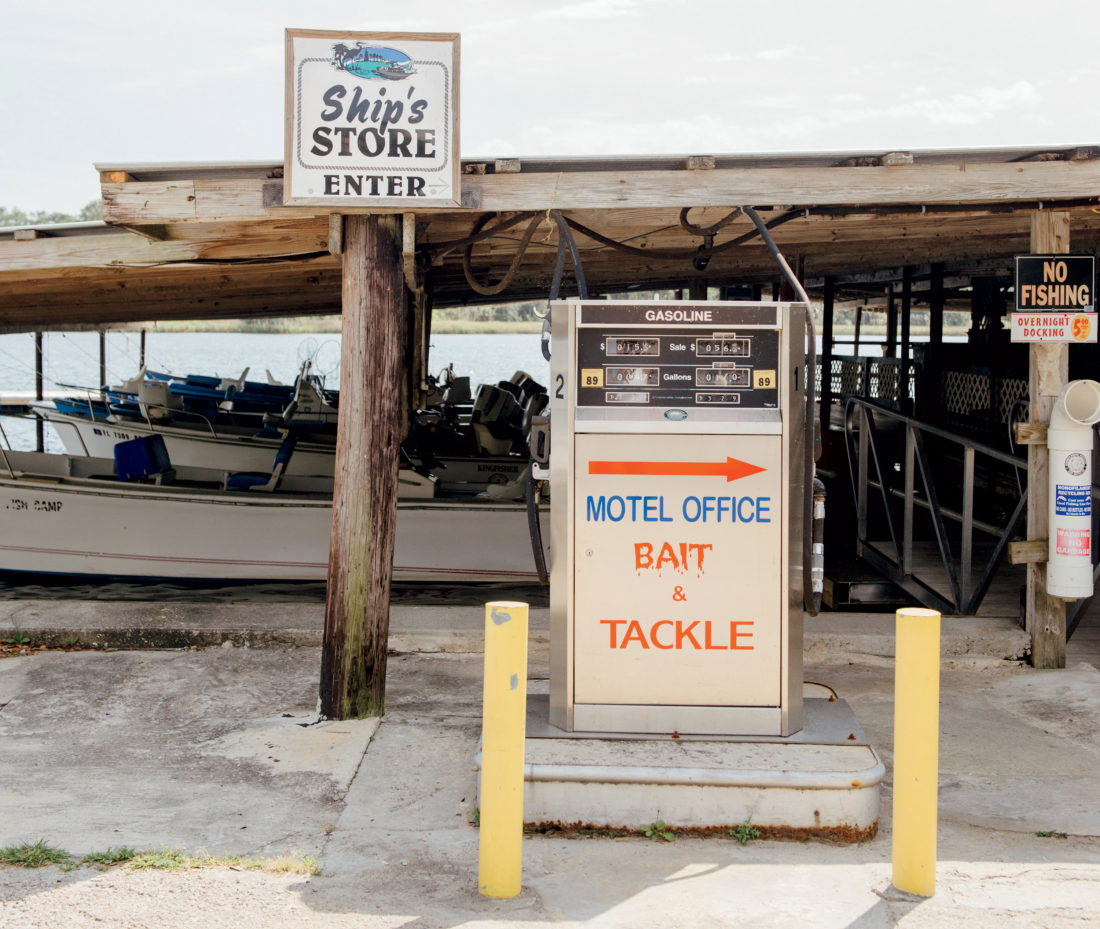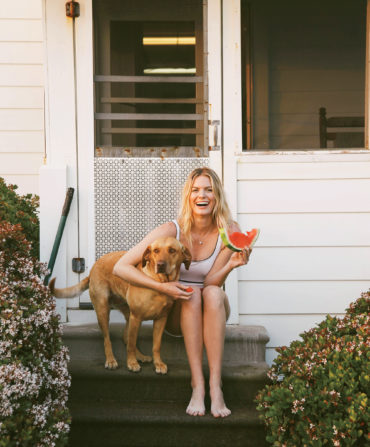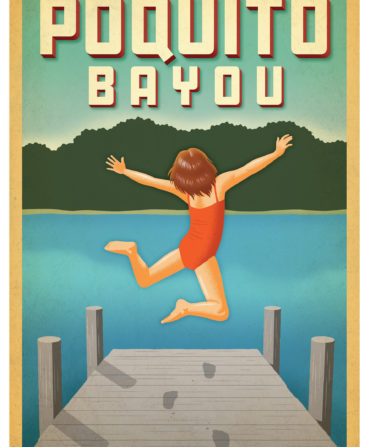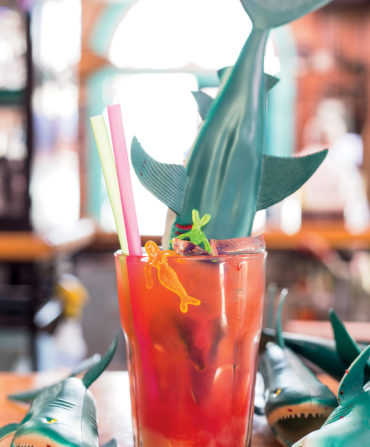The high point of a day of fishing out of Shell Island Fish Camp, for me, has always been the going out, past the convergence of the St. Marks and Wakulla Rivers, both icy cold and spring fed, past the no-wake zone into the open spread of the river between the marshes where the guide kicks the big Yamaha into high gear and you are planing across dark silken water, the sun rising to the left behind the St. Marks lighthouse, flights of brown pelicans headed for work ahead of you, ospreys already out looping and circling and searching, a bald eagle hunched on an oyster bar, at once insouciant and wary as you pass. The smell of salt air abruptly becomes richer as you approach the open water and then peel off into the east or west flats of Apalachee Bay.
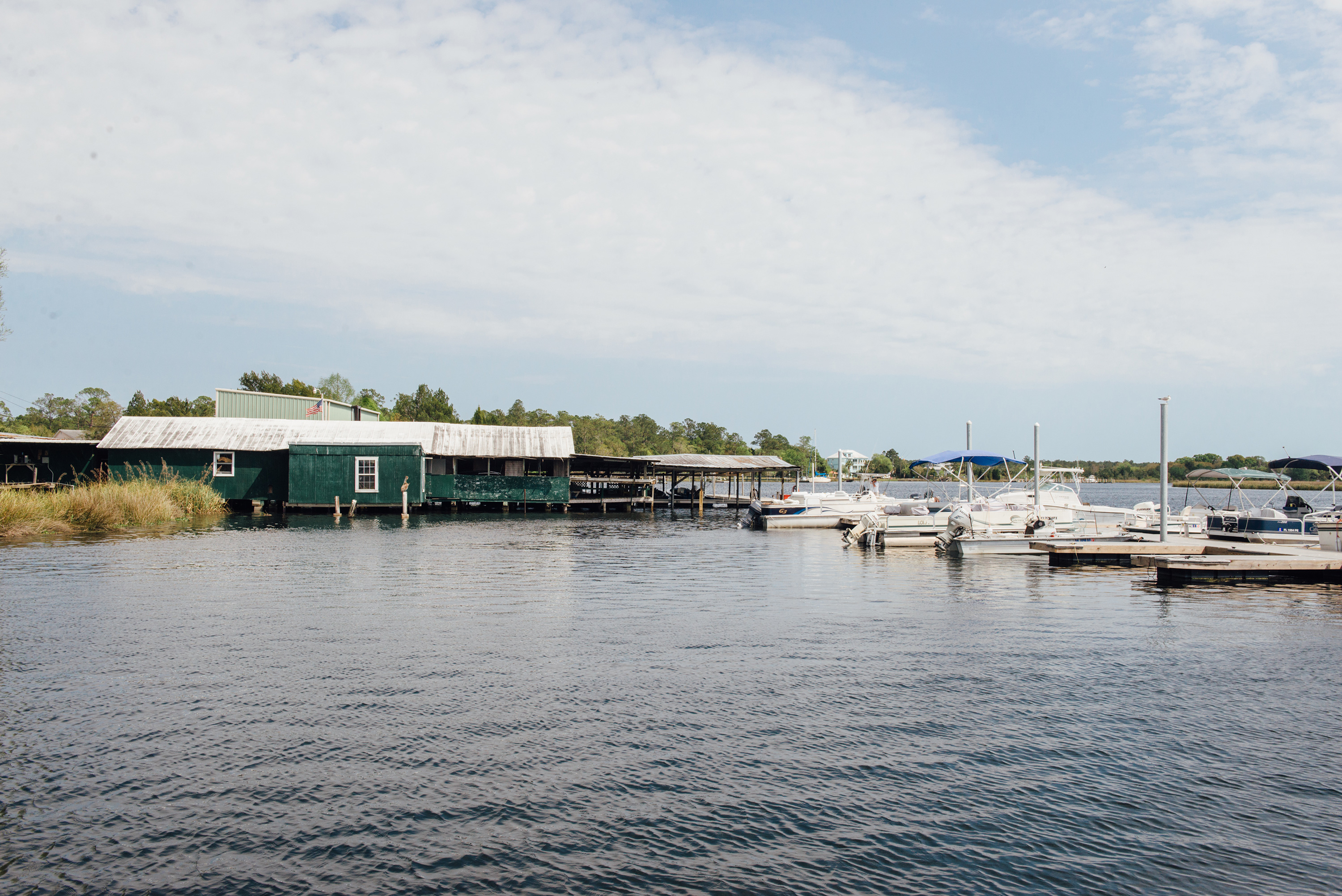
Alicia Osborne
When you return to Shell Island with your cooler full of speckled trout and Spanish mackerel, nasty and exhausted by the sun and beer sodden, someone can be called and will appear out of nowhere to clean your catch at the fish-cleaning station, hosing the guts off into the river below for the assembled pelicans, tarpon, and small alligators. Meanwhile you and your fishing buddies and whoever else is around sprawl along the bench outside the camp store drinking ice-cold Coca-Colas or Orange Crushes or RCs from the refrigerator inside. If you are too tired to cook, most of the restaurants around the corner in the city of St. Marks will fry or broil your fish.
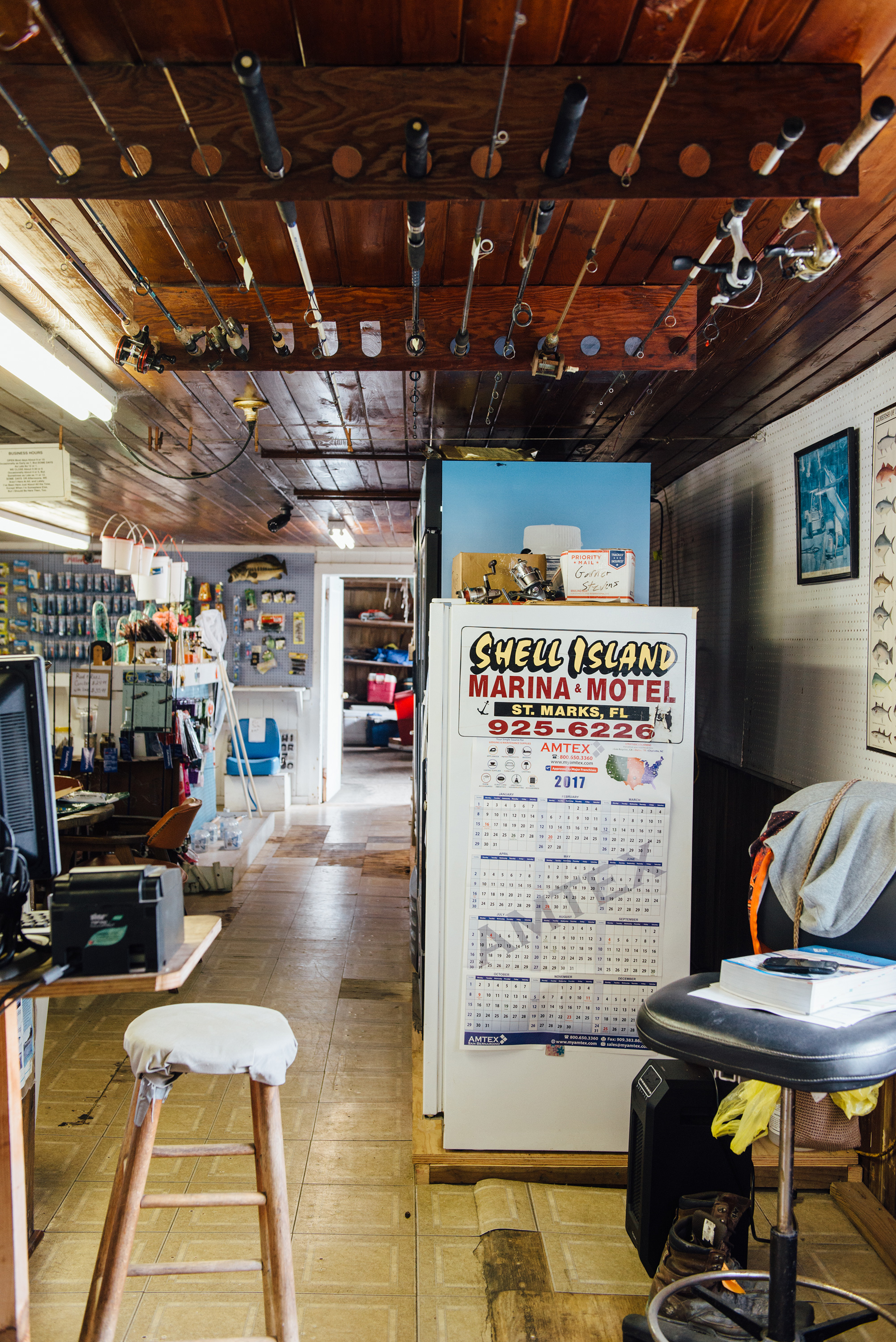
Alicia Osborne
Shell Island, just twenty miles south of Tallahassee, is one of the last surviving fish camps on the Florida Gulf coast. Most of these original camps have been demolished to make room for condos or fancy marinas, but Shell Island—the heart and soul of it—exists pretty much as it has since the early 1950s, when I first started going there with my grandfather. The business and the land have been owned and run by the Hobbs and Bevis families since 1962; for a long time that meant Allen and Ruthie Hobbs, who still hang out at the store sometimes. Allen had many offers to sell, but he promised his dad he never would and he didn’t. Or rather, hadn’t until 2010, when he retired and sold it to his nephew, Jimmy Bevis, with the same family covenant implied.
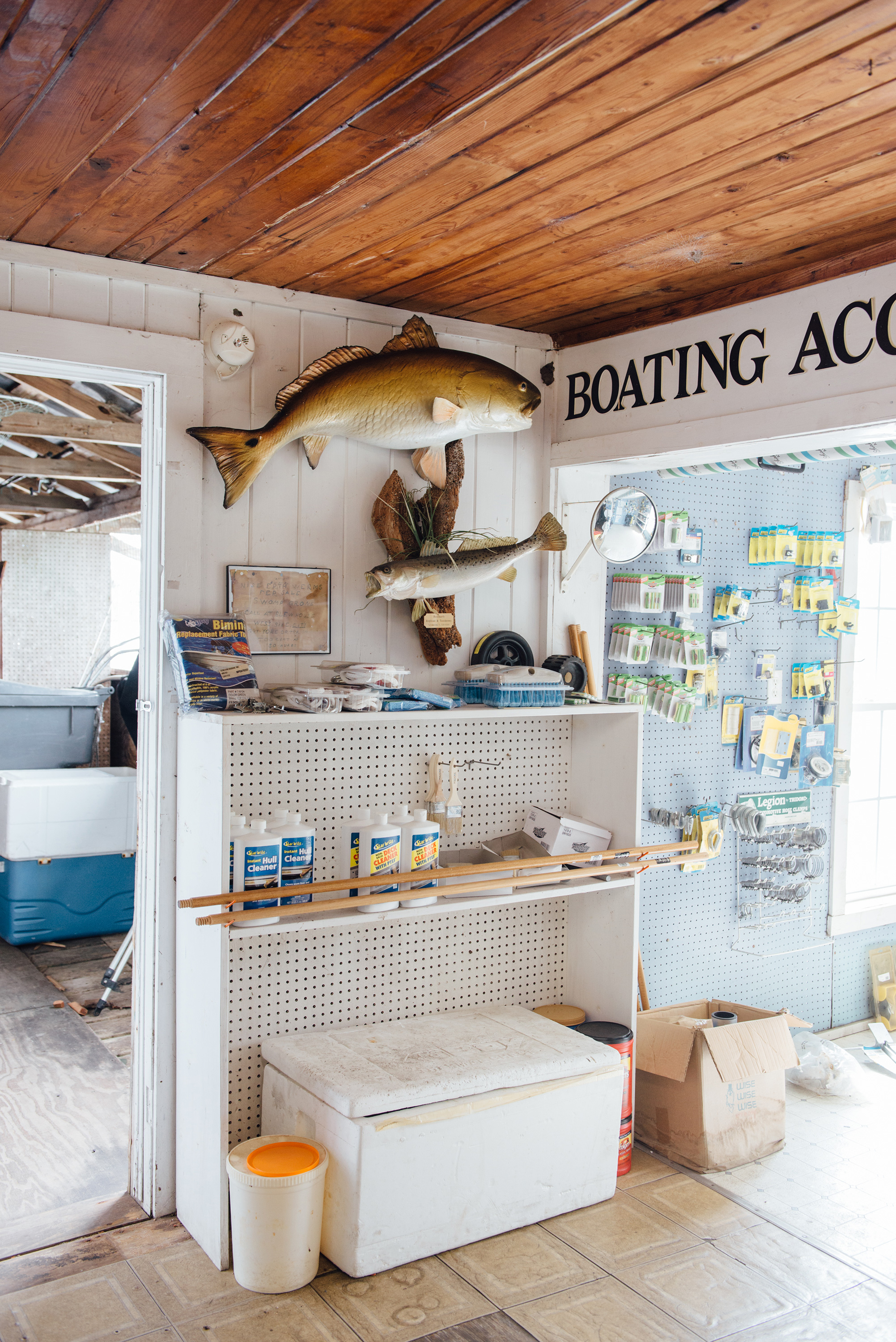
Alicia Osborne
The camp has survived God knows how many hurricanes, the last bad one of which, Dennis, backed the river water up five feet into the store and sent unmoored boats floating loose onto the mainland. Inside the store, you can buy fishing tackle and live shrimp for bait and sandwiches and sardines and Neapolitan coconut candy bars and soft drinks and beer and Vienna sausages and saltines and straw hats, and crushed ice from the icehouse. On the walls, faded photos of huge alligators killed in the river hang stapled next to pictures of happy clients kneeling beside their catches. Attached, a shed with a tin roof covers the docked boats, which you can rent, with motor, for a day for $160 plus fuel and oil, or $260 if you add a guide. There are family-sized pontoon boats, too, one of which my kids and grandkids chugged out in last summer to the sandbar at the very end of the river channel, where we found a maritime cocktail party going on, season-impaired spring breakers with their boats anchored in a ragged circle, wading around in the waist-deep water with drinks in hand and coolers drifting among them in inner tubes. At camp, there are also small cabins for rent, some with screened porches. The full-service repair shop twice rehabilitated the old Johnson Seahorse my grandfather gave me for graduation—once when the cork in the carburetor’s float valve finally disintegrated and once after I flipped the aluminum boat it was on the back of, running, while I tried to launch it into the surf in front of my mother’s house on Alligator Point.
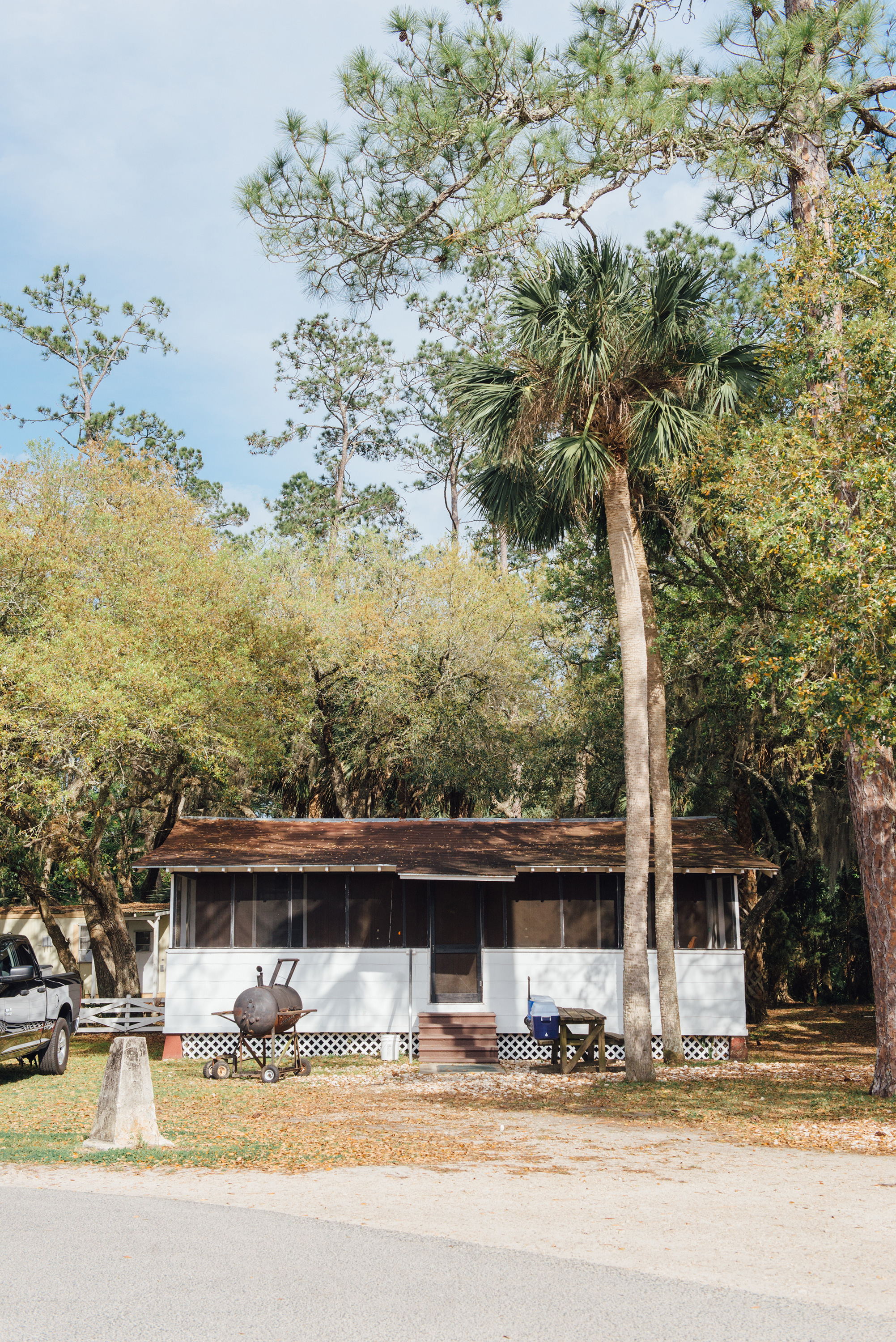
Alicia Osborne
Shell Island is and always has been a family business, so naturally they say that when you come there, you become family, too. It’s a place where you feel thousands and thousands of people’s memories to be floating around in the air visiting each other. But it’s also a place where memory can be suspended, and you are just there, free of anxiety and attachment for the time being. And you start thinking about those cabins under the live oaks, and of porch swings and Adirondack chairs.
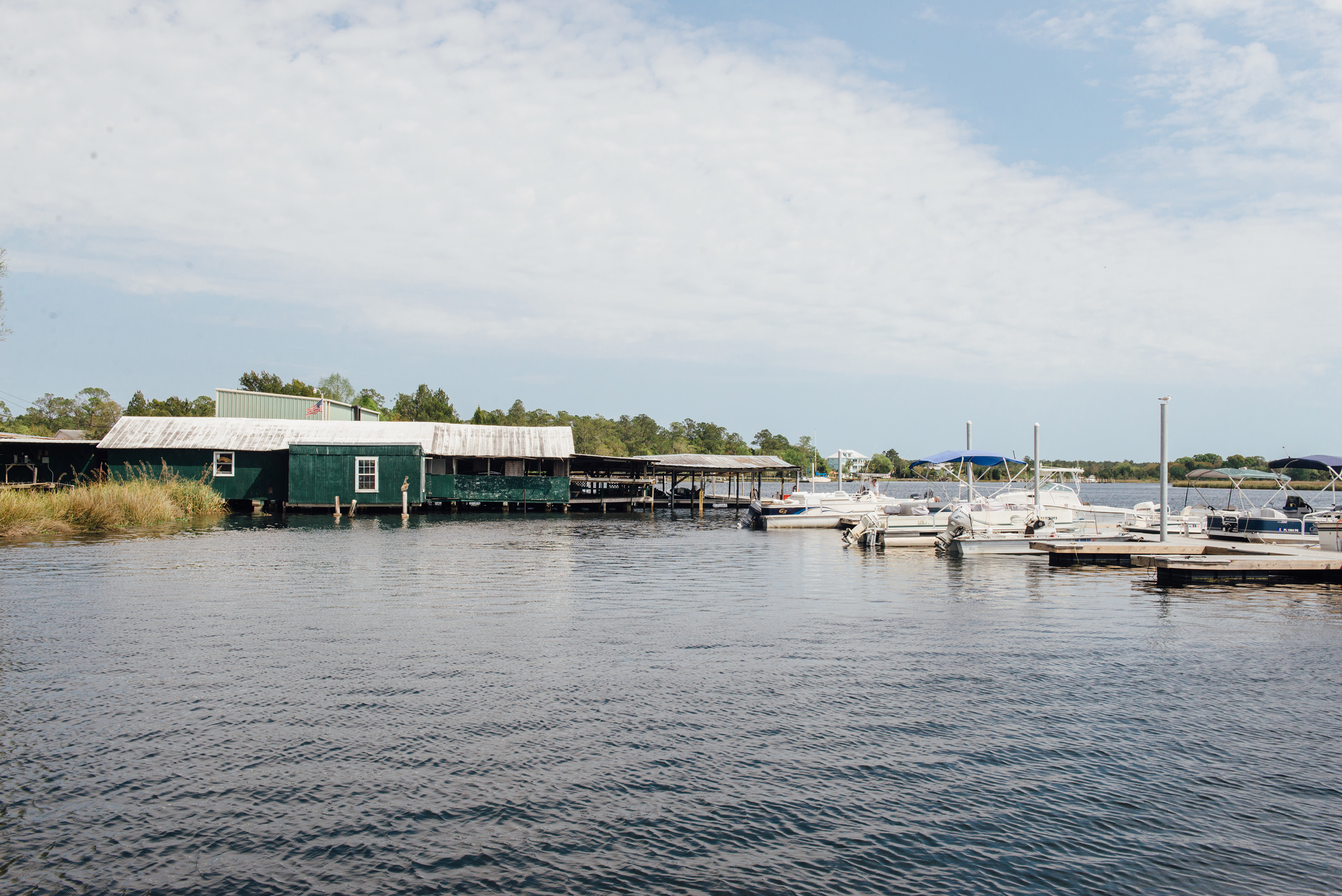
Alicia Osborne


